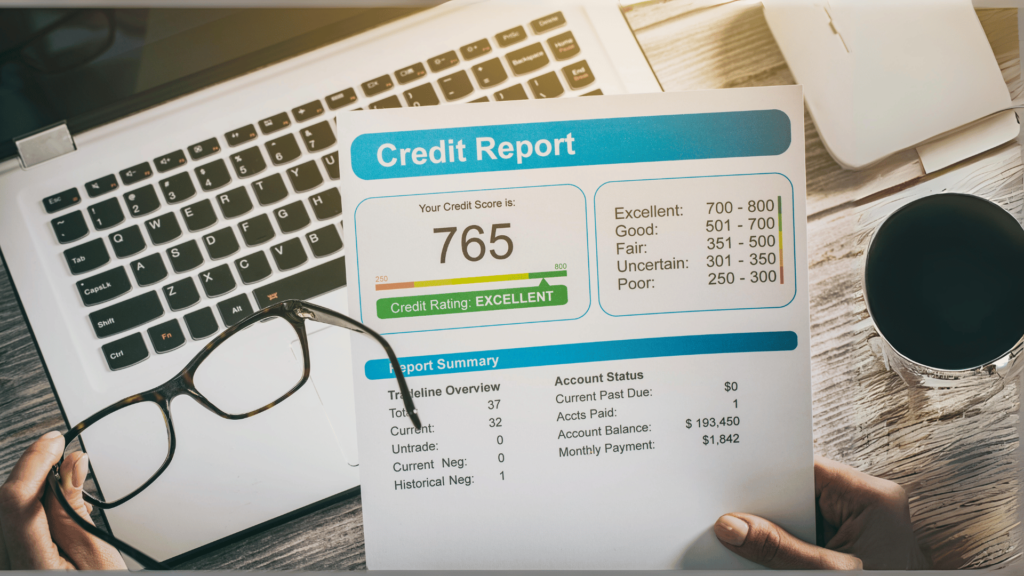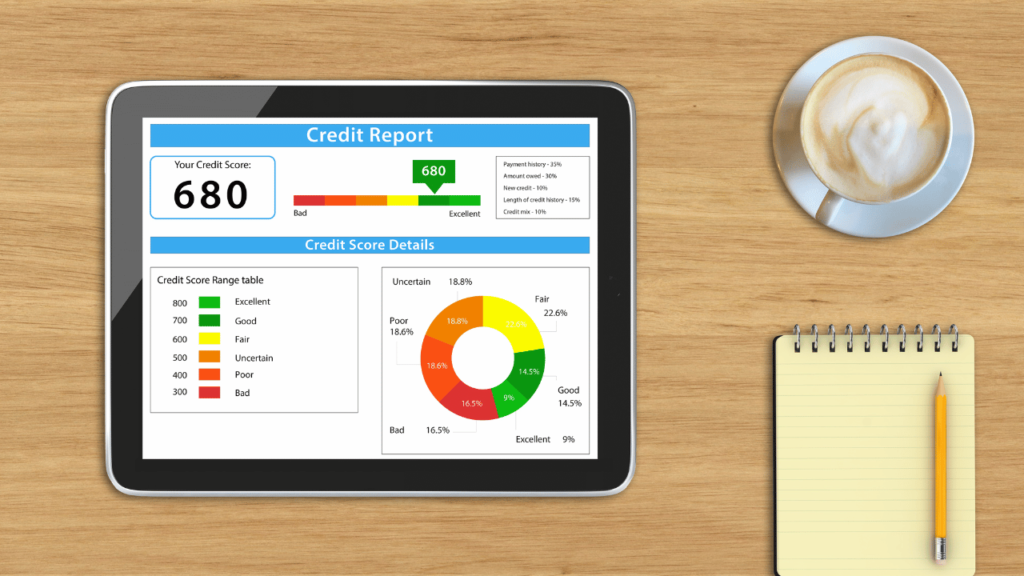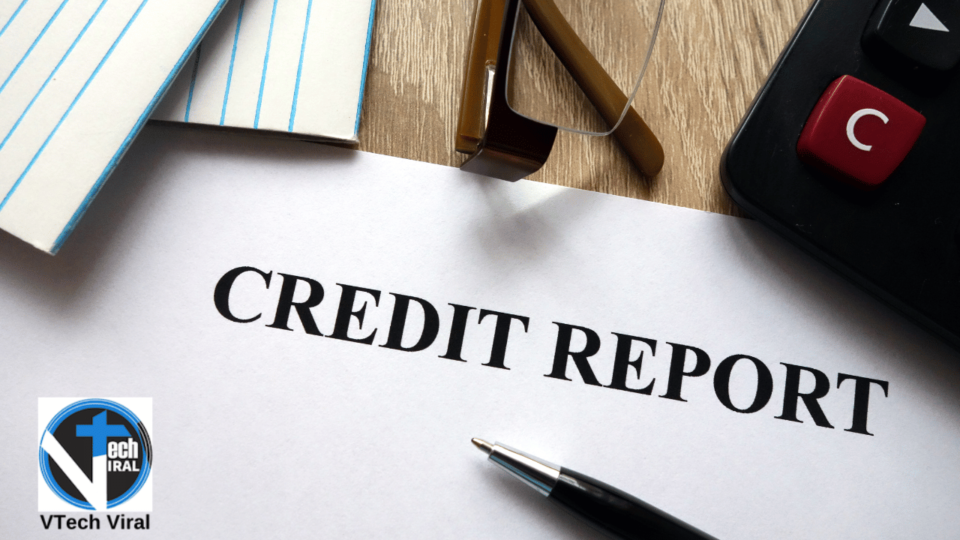1. Introduction to Credit Reports

Credit reports play a significant role in our financial lives, yet many individuals do not fully understand their purpose or how to utilize them effectively. In this article, we will delve into the world of credit reports, providing you with a comprehensive understanding of what they are, why they are important, and how you can benefit from them. We will explore the various components of a credit report, including personal information, credit accounts, payment history, and credit inquiries. Additionally, we will discuss the calculation of credit scores and offer strategies for improving them. We will also address the critical task of identifying and correcting errors in your credit report, as well as ways to leverage your credit report to seize financial opportunities. Lastly, we will cover the importance of monitoring and protecting your credit report to maintain your financial well-being. By the end of this article, you will have the knowledge and tools necessary to navigate your credit report effectively and make informed financial decisions.
1. Introduction to Credit Reports
Understanding the concept of credit reports
Credit reports may seem like mystical documents that have the power to determine your financial fate. But fear not, my friends, for they are not as complicated as they may appear. In simple terms, a credit report is a snapshot of your financial life. It contains information about your credit history, including your borrowing habits and how faithfully you’ve paid back your debts.
The role of credit reports in financial decision-making
Now you might be wondering, why should you care about these credit reports? Well, my friend, credit reports play a significant role in financial decision-making. When you apply for a loan, mortgage, credit card, or even a rental property, the lender or landlord will likely take a peek at your credit report. They use it to gauge your creditworthiness and assess the risk of lending you money or giving you that fancy apartment.
2. The Importance of Checking Your Credit Report
Why regularly checking your credit report is crucial
Picture this: you’re strolling through life, minding your own business when suddenly, BAM! You apply for a loan, only to be rejected because of an error on your credit report. Ouch. This unfortunate scenario is precisely why regularly checking your credit report is crucial. By reviewing it regularly, you can catch any errors, discrepancies, or fraudulent activity before they wreak havoc on your financial endeavors.
The potential impact of errors or discrepancies in your credit report
Let’s delve into the potential impact of errors or discrepancies lurking in your credit report. Firstly, they can harm your credit score, making it more challenging to secure favorable loans or interest rates. Secondly, they can make you look like a financial hot mess, which is never a good look when trying to impress the lenders. So remember, keeping a close eye on your credit report is not just a good habit—it’s a must-do to protect your financial well-being.
3. Understanding the Components of a Credit Report
Overview of the different sections of a credit report

Now that we’ve covered the importance of credit reports, let’s dive into their juicy contents. A typical credit report consists of several sections, each providing valuable insights into your financial life. From personal information to credit accounts and payment history, these sections paint a detailed picture of your creditworthiness.
Interpreting personal information and identification details
Ah, personal information and identification details—the juicy details that make you, well, you. This section of your credit report includes your name, social security number, address, and other vital tidbits. It’s crucial to review this information carefully to ensure accuracy and to avoid any mix-ups with someone else’s financial mess.
Exploring credit accounts and payment history
Here’s where things get really interesting. In this section, you’ll find a rundown of your credit accounts, including credit cards, loans, and mortgages. It also reveals your payment history—did you pay your bills on time? Or were you always late to the party? This information is essential as it helps lenders determine whether you’re a responsible borrower or a wild spender.
Understanding credit inquiries and their significance
Ever wondered why lenders seem to care so much about those inquiries into your credit history? Well, dear reader, credit inquiries are the lenders’ way of peeking behind the curtain to see how you manage your financial affairs. Each time you apply for credit, a record of the inquiry is added to your credit report. Too many inquiries in a short period can make you appear desperate for credit, potentially raising red flags for lenders.
4. How Credit Scores are Calculated
Explaining the purpose and meaning of credit scores
Credit scores—they’re like the golden ticket to the financial world. These numerical wonders sum up your creditworthiness in a single number, making it easier for lenders to assess the risk of lending to you. A high credit score is like having a backstage pass to the best loan terms and interest rates, while a low score can leave you stuck in the nosebleed section.
Factors influencing credit score calculations
Now, let’s pull back the curtain and explore the factors that influence credit score calculations. While credit scoring formulas are as mysterious as the Bermuda Triangle, there are a few key factors they take into account. Things like payment history, credit utilization, length of credit history, and the types of credit you have all play a role in shaping that three-digit number.
The role of payment history, credit utilization, and other key factors
Payment history deserves a standing ovation in the credit score show. It carries significant weight in determining your creditworthiness. By consistently paying your bills on time, you show lenders that you’re a responsible and reliable borrower. Credit utilization, another star of the credit score show, reflects how much of your available credit you’re using. The lower, the better. Remember, my friends, high scores are like hitting the jackpot, while low scores are like stepping on a Lego in the dark. Choose wisely.
5. Identifying and Correcting Errors in Your Credit Report
Common types of errors found in credit reports
Credit reports, like life, are not perfect. They sometimes contain errors that can impact your financial well-being. Common types of errors found in credit reports include incorrect personal information (like wrong address or misspelled names), inaccurate account information (such as closed accounts still showing as open), and even fraudulent activity (someone else’s account showing up on your report). It’s important to identify these errors to ensure your credit report accurately reflects your financial history.
Steps to take when identifying errors
When you receive your credit report, give it a thorough review. Pay attention to any discrepancies or mistakes and make note of them. Start by checking your personal information for accuracy, then move on to the account details. If you spot any errors, gather supporting documentation, such as bank statements or payment receipts, to back up your claim. It’s also a good idea to check your credit score, as errors can sometimes impact this as well. Once you have identified the errors and collected the necessary evidence, it’s time to take action.
How to dispute errors and work with credit bureaus
To dispute errors on your credit report, you’ll need to contact the credit bureau(s) that issued it. Start by writing a detailed letter explaining the errors and providing any supporting documents. Be sure to keep copies of everything for your records. Send the letter via certified mail with a return receipt requested to ensure it’s received. The credit bureau is then required to investigate your claim within 30 days and provide a response. If the errors are verified, they must correct them and send you an updated report. If they do not address the issues, you may need to escalate the dispute or seek legal advice.
6. Strategies for Improving Your Credit Score
Key tips for building and maintaining good credit
Having a good credit score can open doors to financial opportunities. To build and maintain good credit, start by making all your payments on time. Late payments can have a negative impact on your score. It’s also important to keep your credit card balances low and avoid maxing them out. Another tip is to maintain a healthy mix of credit accounts, such as credit cards, loans, and a mortgage. Finally, review your credit report regularly and address any errors or issues promptly.
Reducing credit card debt and managing outstanding loans
Credit card debt can be a burden on your credit score. To reduce it, consider creating a budget and cutting unnecessary expenses. Use any extra money to pay off your highest-interest credit card balances first while still making the minimum payments on your other cards. As for outstanding loans, make sure to make timely payments to demonstrate your financial responsibility. If you’re struggling to keep up with payments, reach out to your lenders to discuss alternative repayment options.
Establishing a positive payment history
One of the most significant factors in your credit score is your payment history. To establish a positive payment history, be diligent about paying your bills on time, every time. Set up automatic payments or reminders to ensure you don’t miss any due dates. Remember, even a single missed payment can affect your credit score, so it’s crucial to stay on top of your financial commitments.
7. Leveraging Your Credit Report for Financial Opportunities

Using your credit report to negotiate better loan terms
When applying for loans, your credit report plays a vital role in the approval process. A healthy credit report can help you negotiate better loan terms, including lower interest rates and higher borrowing limits. Lenders are more likely to offer favorable terms to borrowers with good credit history, as it demonstrates their ability to manage debt responsibly. So, before applying for a loan, review your credit report, take steps to improve your score, and present yourself as a trustworthy borrower.
Exploring credit card options based on your credit report
Your credit report can also guide you in choosing credit card options that suit your financial standing. Credit card providers often have different offerings for individuals with varying credit scores. By understanding your credit report, you can identify credit card options designed for your specific credit score range. This can help you get approved for a credit card that aligns with your needs and potentially offers better rewards or benefits.
Understanding the impact of credit reports on employment and rental applications
Believe it or not, your credit report can have an impact beyond lending. When applying for jobs or rental properties, employers and landlords may review your credit report to assess your financial responsibility. A poor credit report could potentially hinder your chances of securing employment or finding a suitable rental. It’s essential to be aware of this and proactively work on improving your credit report to enhance your overall financial prospects.
8. Monitoring and Protecting Your Credit Report
The importance of ongoing credit report monitoring
Monitoring your credit report regularly is crucial because it allows you to stay on top of any changes, both positive and negative, that may affect your creditworthiness. By monitoring your report, you can detect errors, identify potential identity theft, and track your progress in improving your credit score. It’s a proactive approach to maintaining financial health.
Utilizing credit monitoring services and alerts
Credit monitoring services can be a valuable tool in helping you keep a close eye on your credit report. These services can provide you with regular updates on any changes to your report, including new accounts opened in your name or suspicious activity. Additionally, many credit bureaus offer alerts that notify you of significant changes or potential fraudulent activity. By utilizing these services, you can address any issues promptly and protect your credit.
Tips for protecting your personal information and preventing identity theft
Identity theft is a real concern in today’s digital world. To protect your personal information and prevent identity theft, practice safe online habits, such as using strong and unique passwords, avoiding suspicious emails or links, and regularly monitoring your financial accounts. It’s also wise to review your credit report for any unfamiliar accounts or activity that could indicate fraudulent activity. By being vigilant and taking steps to safeguard your information, you can minimize the risk of identity theft and its potential impact on your credit report.In conclusion, understanding and benefiting from your credit report is crucial for your financial success. By regularly checking your credit report, understanding its components, and taking steps to improve your credit score, you can ensure better financial opportunities and access to favorable loan terms. Correcting errors, leveraging your credit report, and monitoring it for potential threats also contribute to maintaining a healthy credit profile. By implementing the strategies and insights provided in this article, you can take control of your credit report and pave the way towards a stronger financial future.
- How often should I check my credit report? It is recommended to check your credit report at least once a year. Regular monitoring helps you stay informed about your credit history and ensures the accuracy of the information. However, if you’re planning a major financial decision, such as applying for a loan or credit card, consider checking it more frequently, even monthly.
- Can I access my credit report for free? Yes, you are entitled to one free credit report from each of the major credit bureaus (Equifax, Experian, and TransUnion) annually. To obtain your free reports, visit AnnualCreditReport.com. Be cautious of other websites claiming to offer free reports, as they may involve hidden fees or subscription services.
- What should I do if I find errors or discrepancies in my credit report? If you discover errors or discrepancies in your credit report, promptly dispute them with the credit bureau(s) reporting the inaccuracies. Obtain and complete their dispute forms or submit a written dispute letter, providing documentation supporting your claim. Monitoring your credit report regularly ensures timely detection of errors, allowing you to address them promptly.
- How long does it take to improve my credit score? The time it takes to improve your credit score varies based on individual circumstances. Positive changes, such as making on-time payments and reducing outstanding debt, can have an immediate impact. However, significant improvements may take several months or even years. Consistency in positive financial habits, responsible credit use, and patience are key factors in gradually boosting your credit score over time.
